2020 Reading List
January 5, 2021
I read a number of helpful books this last year. Here are ten that I found both accessible and helpful.
Gentle and Lowly: The Heart of Christ for Sinners and Sufferers by Dane Ortlund
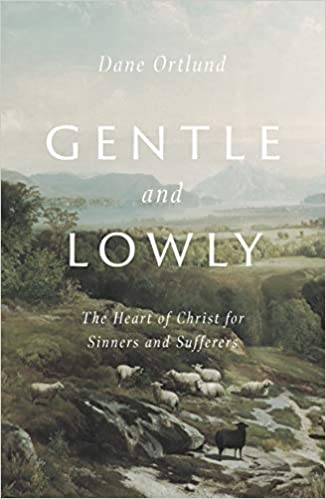 If I had one book to stir the affections of others towards Christ, other than the Bible, this would be it. I have no higher commendation. Ortlund’s title comes from Matthew 11:29 which uniquely highlights the very heart of Christ as “gentle and lowly.” From there, he aims at studying the heart of Christ for sinners and suffers with a combination of careful exegesis to a variety of Scriptures and close attention to the insights Puritans and others who have meditated deeply on the glories of the very Heart of Christ. You will want to read and reread this one.
If I had one book to stir the affections of others towards Christ, other than the Bible, this would be it. I have no higher commendation. Ortlund’s title comes from Matthew 11:29 which uniquely highlights the very heart of Christ as “gentle and lowly.” From there, he aims at studying the heart of Christ for sinners and suffers with a combination of careful exegesis to a variety of Scriptures and close attention to the insights Puritans and others who have meditated deeply on the glories of the very Heart of Christ. You will want to read and reread this one.
The Rise and Triumph of the Modern Self: Cultural Amnesia, Expressive Individualism and the Road to the Sexual Revolution by Carl Trueman
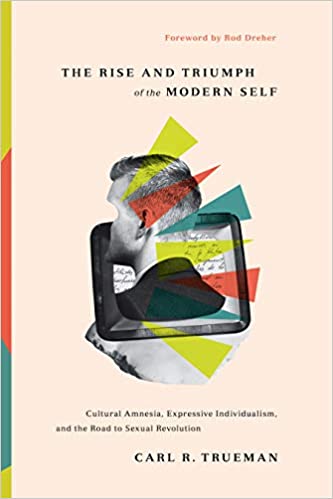 Some books uniquely haunt you once you’ve read them. They influence the way you understand the metanarrative of the culture in which you live. Trueman accomplishes this masterfully as he seeks to answer a simple question—“Why does the sentence, ‘I am a woman trapped in a man’s body’ make sense…’”, and not just to academic elites but to your neighbor?” Trueman explores the reality that ideas really do have consequences moving from Rouseau to Ariana Grande to the Supreme Court. I’m not quite sure how to especially recommend this to teachers and academians of all breeds while also urging everyone to read it, but hopefully that just happened☺
Some books uniquely haunt you once you’ve read them. They influence the way you understand the metanarrative of the culture in which you live. Trueman accomplishes this masterfully as he seeks to answer a simple question—“Why does the sentence, ‘I am a woman trapped in a man’s body’ make sense…’”, and not just to academic elites but to your neighbor?” Trueman explores the reality that ideas really do have consequences moving from Rouseau to Ariana Grande to the Supreme Court. I’m not quite sure how to especially recommend this to teachers and academians of all breeds while also urging everyone to read it, but hopefully that just happened☺
Dark Clouds Deep Mercy: Discovering the Grace of Lament by Mark Vroegop
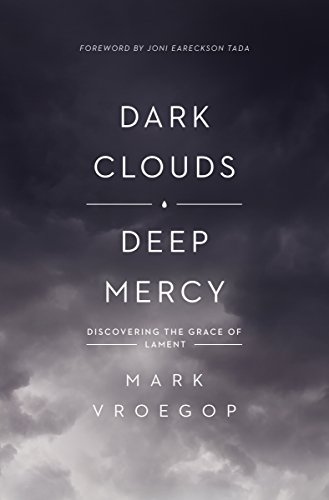 His title connects the painful clouds of judgment over Zion in Lamentations 2:1 with the hope-filled promise of fresh mercy every morning in Lamentation 3:22. Voelgrup learned to lament the pain of this life when he and his wife gave birth to a stillborn daughter. That experience, and others, taught him how to lament to God in such a way that it moved his heart from bringing his pain to God to freshly taking hold of his promises. He couples careful treatment of Psalms 77, 10, 22, and 13, with real-life examples and helpful application. I would take his emphasis on lament as critical for working through grief and the pains of this life that seemingly go unanswered.
His title connects the painful clouds of judgment over Zion in Lamentations 2:1 with the hope-filled promise of fresh mercy every morning in Lamentation 3:22. Voelgrup learned to lament the pain of this life when he and his wife gave birth to a stillborn daughter. That experience, and others, taught him how to lament to God in such a way that it moved his heart from bringing his pain to God to freshly taking hold of his promises. He couples careful treatment of Psalms 77, 10, 22, and 13, with real-life examples and helpful application. I would take his emphasis on lament as critical for working through grief and the pains of this life that seemingly go unanswered.
The Wonderful Works of God by Herman Bavinck and R. Carlton Wynne
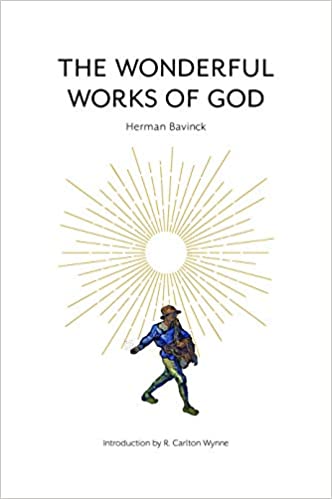 Some may feel like Bavinck is getting all the attention these days in academic circles kind of like Jan from the Brady Bunch crying out “Marcia, Marcia, Marcia!” Part of this certainly has to do with the recent translation of his works into English from Dutch. Yet I have to say that his voice is theologically thrilling. TWWG is a great place to begin reading Bavinck. It is a work written to train laypeople, but it is lengthy. Here’s a sampling of what you will find: “In the light of the knowledge of God, which the Christian owes to Christ, he lets his eyes linger on nature and on history, on heaven and on earth, then he discovers traces everywhere of that same God whom he has learned to know and to worship in Christ as his Father. The Sun of righteousness opens up a wonderful vista to him which stretches out to the ends of the earth. By its light he sees backwards into the night of past times, and by it he penetrates through to the future of all things. Ahead of him and behind the horizon is clear, even though the sky is often obscured by clouds” (21).
Some may feel like Bavinck is getting all the attention these days in academic circles kind of like Jan from the Brady Bunch crying out “Marcia, Marcia, Marcia!” Part of this certainly has to do with the recent translation of his works into English from Dutch. Yet I have to say that his voice is theologically thrilling. TWWG is a great place to begin reading Bavinck. It is a work written to train laypeople, but it is lengthy. Here’s a sampling of what you will find: “In the light of the knowledge of God, which the Christian owes to Christ, he lets his eyes linger on nature and on history, on heaven and on earth, then he discovers traces everywhere of that same God whom he has learned to know and to worship in Christ as his Father. The Sun of righteousness opens up a wonderful vista to him which stretches out to the ends of the earth. By its light he sees backwards into the night of past times, and by it he penetrates through to the future of all things. Ahead of him and behind the horizon is clear, even though the sky is often obscured by clouds” (21).
Good and Bad Ways to Think About Religion and Politics by Robert Benne
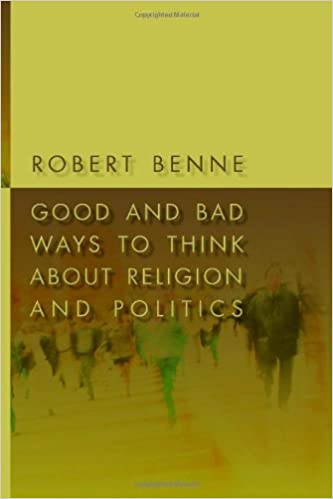 Malachi recommended this book to help prepare for our equip class on politics this last Fall. Benne does an excellent job of setting the stage for how Christians can think about and discuss politics. I appreciated how he introduced terms in accessible ways while also offering concrete examples of the way politics and religion have intersected in though throughout history. I found this to be a helpful primer to prepare the reader to engage in discussions concerning politics which modeled a healthy questioning of both sides of the aisle while demonstrating that our Kingdom is truly not of this world.
Malachi recommended this book to help prepare for our equip class on politics this last Fall. Benne does an excellent job of setting the stage for how Christians can think about and discuss politics. I appreciated how he introduced terms in accessible ways while also offering concrete examples of the way politics and religion have intersected in though throughout history. I found this to be a helpful primer to prepare the reader to engage in discussions concerning politics which modeled a healthy questioning of both sides of the aisle while demonstrating that our Kingdom is truly not of this world.
Finding the Right Hills to Die On: The Case for Theological Triage by Gavin Ortlund
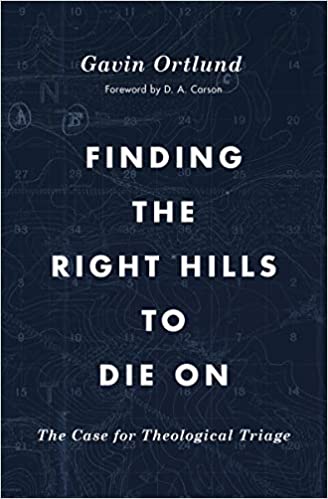 I tend to appreciate any book written by someone with the last name Ortlund. Gavin (not to be confused with Dane) has written an excellent book that follows up on Al Mohler’s article on Theological Triage which is utilized in Andy Naselli’s book Conscience. Mohler (and Naselli following his article) utilizes a three-tiered system to evaluate the significance of issues in the church (paraphrased Christ, Church, and Culture). Gavin suggests four categories: essential, urgent, important, and unimportant. I guess that would be more like fourage or quadrage than triage? Regardless if you use 3, 4, or 7 categories, I found the heart behind this work as well as Gavin’s personal experiences and his examples of common theological divisions with historical background extremely helpful for preparing Christians to better evaluate how to discuss potentially divisive issues.
I tend to appreciate any book written by someone with the last name Ortlund. Gavin (not to be confused with Dane) has written an excellent book that follows up on Al Mohler’s article on Theological Triage which is utilized in Andy Naselli’s book Conscience. Mohler (and Naselli following his article) utilizes a three-tiered system to evaluate the significance of issues in the church (paraphrased Christ, Church, and Culture). Gavin suggests four categories: essential, urgent, important, and unimportant. I guess that would be more like fourage or quadrage than triage? Regardless if you use 3, 4, or 7 categories, I found the heart behind this work as well as Gavin’s personal experiences and his examples of common theological divisions with historical background extremely helpful for preparing Christians to better evaluate how to discuss potentially divisive issues.
Coronavirus and Christ by John Piper
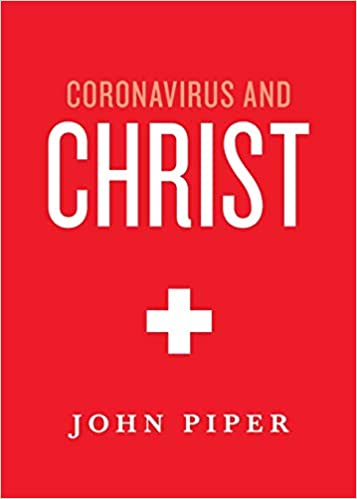 This is barely a book. A booklet might be a better description. While you might not agree with all of Piper’s connections with how to understand the pandemic, you can’t help but appreciate his urging all of us to trust the sovereign hand of God amidst this modern pestilence that has plagued our world. Furthermore, if you follow his footnotes you will find a mostly-forgotten, record of the diverse ways that Christians of the past have responded to pandemics, hopefully creating a sense of humility as to how we judge other Christians seeking to be faithful in these crazy days.
This is barely a book. A booklet might be a better description. While you might not agree with all of Piper’s connections with how to understand the pandemic, you can’t help but appreciate his urging all of us to trust the sovereign hand of God amidst this modern pestilence that has plagued our world. Furthermore, if you follow his footnotes you will find a mostly-forgotten, record of the diverse ways that Christians of the past have responded to pandemics, hopefully creating a sense of humility as to how we judge other Christians seeking to be faithful in these crazy days.
All That God Cares About: Common Grace and Divine Delight by Richard J. Mouw
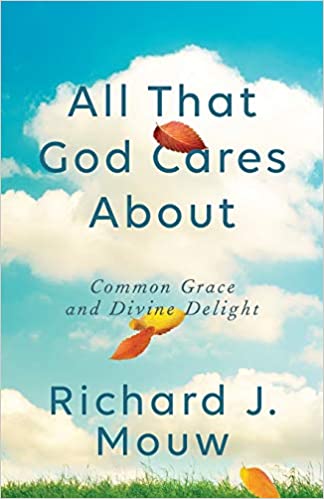 I have to admit that I didn’t feel like Mouw delivered on the title’s promise. The book is too light on Scripture to support his claims of how God delights in the works of non-Christians. I expected more scriptural support for and examples of “common grace.” Even the scant verses he appeals to felt questionable. So, why include it? A. He’s an excellent writer. B. He offers a Neo-Calvinist history covering the 20th century split in the Dutch Reformed tradition as well as offering key differences between the Neo-Calvinist movement and that of Traditional Calvinists concerning their stance on common grace. C. He left me with much to think about concerning the doctrine of “Common Grace.”
I have to admit that I didn’t feel like Mouw delivered on the title’s promise. The book is too light on Scripture to support his claims of how God delights in the works of non-Christians. I expected more scriptural support for and examples of “common grace.” Even the scant verses he appeals to felt questionable. So, why include it? A. He’s an excellent writer. B. He offers a Neo-Calvinist history covering the 20th century split in the Dutch Reformed tradition as well as offering key differences between the Neo-Calvinist movement and that of Traditional Calvinists concerning their stance on common grace. C. He left me with much to think about concerning the doctrine of “Common Grace.”
How to be Filled with the Holy Spirit by AW Tozer
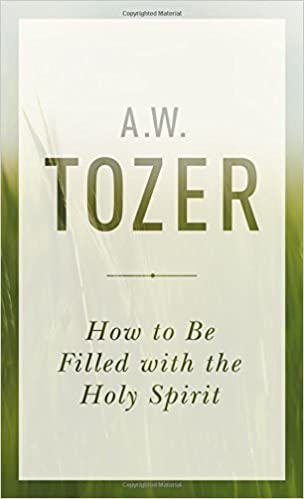 This short book reflects a series Tozer preached on being filled with the Holy Spirit. I would have liked more Scripture in this little book. I was both and encouraged and left wanting. I found his focus on the Holy Spirit to be thoroughly biblical and Christ-centered, but it lacked sufficient focus on the context of Ephesians 5:18, where we have the explicit command to “be filled with the Spirit,” a focus on the fruits of the Spirit mentioned in Galatians 5, or the evidence of the Spirit within the context of a local church for the purpose of building up of the church in 1 Corinthians 12-14. Perhaps this reveals some of the tendencies to isolation his biographies identify.
This short book reflects a series Tozer preached on being filled with the Holy Spirit. I would have liked more Scripture in this little book. I was both and encouraged and left wanting. I found his focus on the Holy Spirit to be thoroughly biblical and Christ-centered, but it lacked sufficient focus on the context of Ephesians 5:18, where we have the explicit command to “be filled with the Spirit,” a focus on the fruits of the Spirit mentioned in Galatians 5, or the evidence of the Spirit within the context of a local church for the purpose of building up of the church in 1 Corinthians 12-14. Perhaps this reveals some of the tendencies to isolation his biographies identify.
The Pastor’s Soul: The Call and Care of an Undershepherd by Brian Croft and Jim Savastio
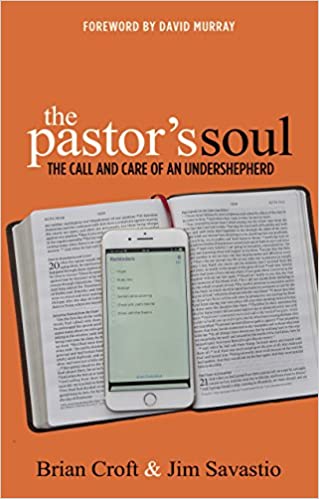 This book felt a little like an abridged version of the combination of Dangerous Calling by Paul Tripp and Reset by David Murray. These authors argue that a pastor must care well for his own soul before he can care for the souls of others. This book was brief, perhaps to brief, to go deeper into the care of the souls of pastors, but it provides a helpful king of check list for important issues to consider. I appreciated that this book focused on both the spiritual and physical needs of a pastor. The two are connected. Brian also offers helpful encouragement on the reality that a pastor’s strength in pastoral ministry is embracing his weakness so that Christ might be magnified.
This book felt a little like an abridged version of the combination of Dangerous Calling by Paul Tripp and Reset by David Murray. These authors argue that a pastor must care well for his own soul before he can care for the souls of others. This book was brief, perhaps to brief, to go deeper into the care of the souls of pastors, but it provides a helpful king of check list for important issues to consider. I appreciated that this book focused on both the spiritual and physical needs of a pastor. The two are connected. Brian also offers helpful encouragement on the reality that a pastor’s strength in pastoral ministry is embracing his weakness so that Christ might be magnified.